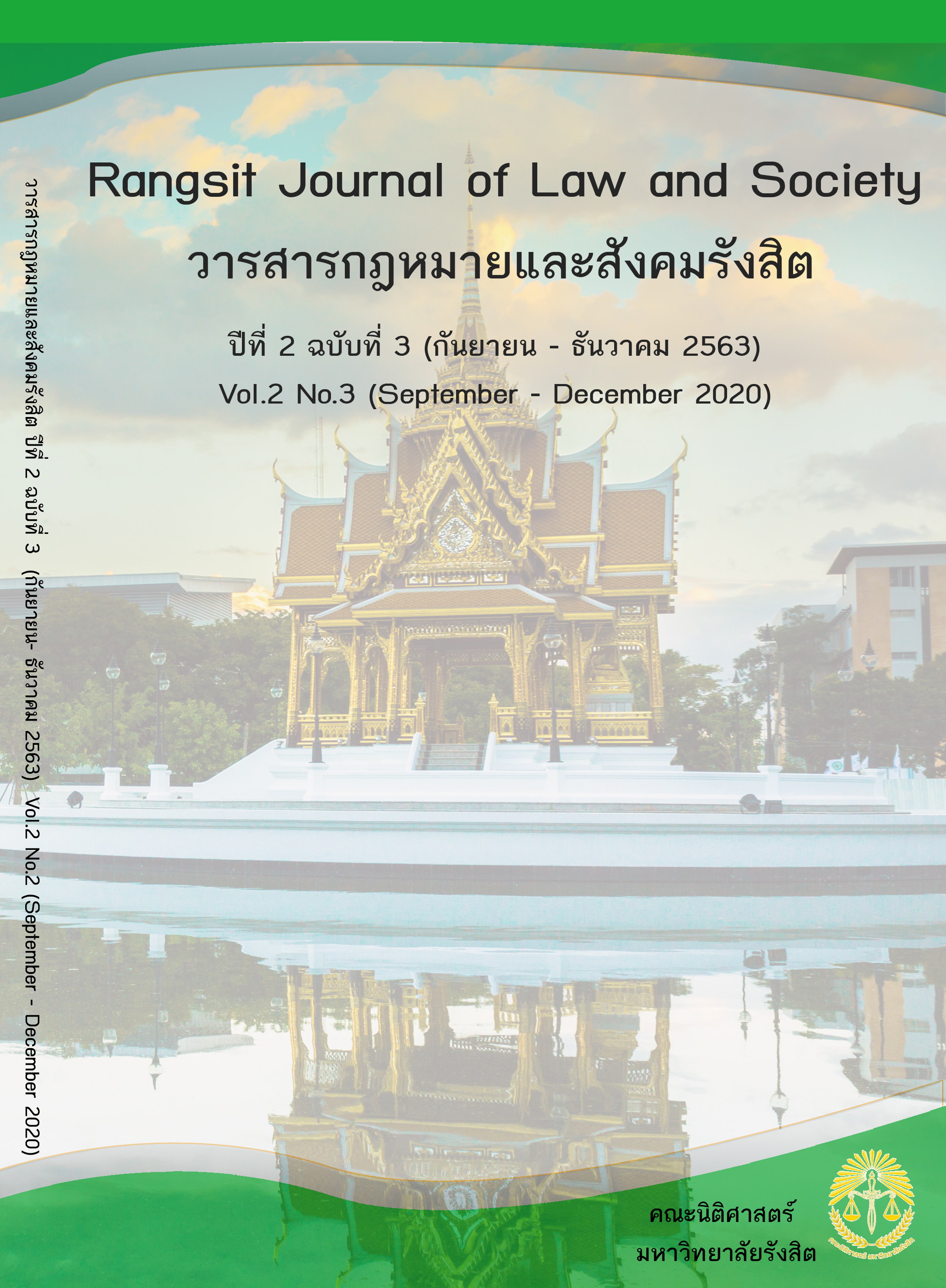วิวัฒนาการช่วงเปลี่ยนผ่านของวัตถุประสงค์ในการบังคับโทษจำคุก
Main Article Content
บทคัดย่อ
แนวคิดที่ผ่านมาในการลงโทษเป็นไปตามวัตถุประสงค์ของการลงโทษ คือ 1. การลงโทษเพื่อเป็นการทดแทน 2. การลงโทษเพื่อเป็นการข่มขู่ 3. การลงโทษเพื่อเป็นการตัดโอกาสกระทำความผิด 4. การลงโทษเพื่อเป็นการปรับปรุงแก้ไข ในช่วงเวลาต่อมาได้มีการพัฒนาแนวคิดเป็นไปในทางเสรีประชาธิปไตยและการคุ้มครองความเป็นมนุษย์มากขึ้น ปรากฏหลักการสำคัญหลายประการได้แก่ หลักนิติธรรม หรือหลักนิติรัฐ หลักสิทธิมนุษยชน หลักศักดิ์ศรีความเป็นมนุษย์ ซึ่งได้รับการยอมรับและนำไปปฏิบัติทั้งในระดับสากลทั้งในข้อตกลง ข้อบังคับ มาตรฐานต่างๆ ตลอดทั้งสนธิสัญญาและการบังคับใช้ในแต่ละประเทศในระดับกฎหมายรัฐธรรมนูญและกฎหมายเฉพาะเรื่อง แนวคิดทฤษฏีของการบังคับโทษจำคุกพบว่าได้มีวิวัฒนาการเปลี่ยนผ่านตามมาตามวิถีโลก จึงได้ปรากฏแนวคิดของการบังคับโทษจำคุกเกิดขึ้น คือ ข้อ 1.เพื่อให้ผู้กระทำความผิดสามารถที่จะดำรงชีวิตอนาคตได้โดยปราศจากการกระทำความผิดและมีความรับผิดชอบต่อสังคม ข้อ 2. เพื่อเป็นการคุ้มครองสังคม
วัตถุประสงค์ของการลงโทษและการบังคับโทษ ได้ผสมผสานกันอย่างบูรณาการสมประโยชน์เพื่อการคุ้มครองชีวิตมนุษย์ได้ดุลยภาพ กล่าวคือ ในทางความคิดและทางปฏิบัติได้มีการนำมาใช้ คือ ข้อ 1.เพื่อให้ผู้กระทำผิดสามารถที่จะมีการดำรงชีวิตอนาคตโดยปราศจากการกระทำความผิดและมีความรับผิดชอบต่อสังคม ข้อ 2. เพื่อเป็นการคุ้มครองสังคม ข้อ 3.เพื่อแก้แค้นทดแทนที่เหมาะสม เพื่อป้องกันการแก้แค้นกันเอง ข้อ 4.เพื่อข่มขู่ มิให้เอาเยี่ยงอย่าง ข้อ 5.เพื่อตัดโอกาสการกระทำความผิด จากพัฒนาการดังกล่าวจึงมีข้อเสนอแนะให้การบังคับโทษในประเทศไทยมีปรับปรุงแก้ไขทั้งในนโยบาย บทบัญญัติกฎหมายและทางปฏิบัติ
Article Details

อนุญาตภายใต้เงื่อนไข Creative Commons Attribution-NonCommercial-NoDerivatives 4.0 International License.
เอกสารอ้างอิง
คณิต ณ นคร. (2549). กฎหมายวิธีพิจารณาความอาญา. (พิมพ์ครั้งที่ 7). กรุงเทพมหานคร: วิญญูชน.
นัทธี จิตสว่าง. (ม.ป.ป.). หลักทัณฑวิทยา. (พิมพ์ครั้งที่ 3). กรุงเทพมหานคร: มูลนิธิพิบูลสงเคราะห์ กรมราชทัณฑ์.
อุททิศ แสนโกศิก. (2415). หลักกฎหมายอาญา: การลงโทษ. ใน อนุสรณ์ในงานพระราชทานเพลิงศพ วัดธาตุทอง. กรุงเทพมหานคร: ม.ป.พ.
Bartollas Clemens. (2002). Invitation to Corrections. Boston USA: Allyn&Bacon.
Bartollas, Clemens. (2002). Invitation to Corrections. Boston USA: Allyn&Bacon.
Kaiser Günther. (1984). Prison Systems & Correctional Law : Europe, The United States, and Japan A Comparative Analysis. New York USA: Transnational Publishers.
Kaiser Günther. (2003). Strafvollzug. Germany: C.F.Müller.
Laubenthal Klaus. (2008). Strafvollzug. Germany: Springer.
Livingstone Stephen and Owen Tim. (1999). Prison Law. New York USA: Oxford.
Petersilia, Joan. (2003). When Prisoners Come Home. New York USA: Oxford.
Roxin, Claus. (2014). Strafverfahrensrecht. München Germany: C.H.BECK.

